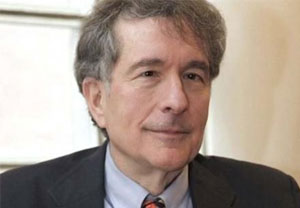Introduction to Multiple Intelligence

What has become a powerful force in the world of education, started in 1983, When professor Howard Gardner of Harvard university started writing his book 'Frames of mind”: The theory of Multiple Intelligences answers some simple but very powerful questions, viz whether talented chess players, athletes & violinists posses 'intelligence' in their respective disciplines?
Why these and other abilities are not accounted for in traditional IQ tests?
Why is the term intelligence limited to such a narrow range of human endeavors?
From these questions emerged the Multiple intelligence theory. In simple words, It challenges psychology's definition of intelligence as a general ability that can be measured by a single IQ score. Instead Multiple Intelligence theory describes eight intelligences that people use to solve problems, think and learn.
Multiple intelligence theory asserts that individuals with a high level of aptitude in a particular type of intelligence do not necessarily exhibit similar aptitude in any other type of intelligence. For example, a young person who demonstrates an impressive level of musical intelligence may be far less skilled when it comes to logical mathematical intelligence. Perhaps this seems obvious, but it is important to recognize that this notion stands in sharp contrast to the traditional and still dominant view of intelligence as a general ability that can be measured along a single scale and summarized by a single number.
Eight kind of Intelligences

Mathematical - Logical Intelligence
The ability to reason and calculate
enables individuals to use and appreciate abstract relations.
The ability to manipulate numbers, quantities, operations, etc.
Many scientists, mathematicians, engineers, doctors and economists function in this level of intelligences.
Career Interests :
Scientist, Mathematician, Tax Officer, Accountant, Statistician, Scientist Judge, Actuary, Software, Engineer, Economist

Linguistic - Verbal Intelligence
The ability to read, write, and communicate with words.
The ability to use language to express one’s thoughts and to understand other people orally or in writing.
They tend to learn best by reading, taking notes, listening to lectures, and discussion and debate.
Possible Career Interests :
Writers, Lawyers, Journalists, Speakers, Trainers, Copy-writers, Teachers, Poets, Editors, Translators, PR consultants, Media consultants, TV and radio presenters Voice-over artistes, Novelist

Interpersonal - Self Intelligence
The ability to distinguish among an individual’s own feelings, to accurate mental models of themselves, and use them to make decisions about life.
They are also intuitive and capable of deep contemplations.
Possible Career Interests :
Psychologist, Pastor, Psychology, Professor, Therapist, Counselor, Entrepreneur, Novelist

Bodily - Kinesthetic Intelligence
Fond of outdoor adventures and physical activities. People with high kinesthetic intelligence are dexterous, capable of excellent control of their body parts and skilled crafters.
Allows individuals to use all or part of one’s body.
Possible Career Interests :
Actors, Martial Arts Performer, Yoga Instructor, Dancer, Athlete, Sculptor, Nursing Staff, Chefs, Chinese Physician, Acupuncturists, Mechanic etc.

Visual - Spacial Intelligence
People with high visual-spacial intelligence are proficient map readers, like to draw, play with puzzles and labyrinths.
They have good perception of space, lines, shapes and colors. Besides they have excellent sense of direction.
The ability to think in pictures and visualize future results
Possible Career Interests:
Tour Guide, Interior Designer, Urban Planning, Pilot, Captain, Architect, Photographer, Painter, Animator, Web Designer, Cartoonist, Illustrator

Auditory - Musical Intelligence
Musical intelligence is the ability to make use of the relationship between pitch, rhythm, and timbre
The ability to create, communicate, and understand meanings made out of sound, the ability to compose music, to sing, and to keep rhythm & the ability to hear music, tones, and larger musical patterns.
Career Interests :
Symphony orchestra conductor, Musicians, Singers, Composers, DJ's Music Producers, Piano Tuners, Music Therapist, Acoustic Engineers, Entertainers etc.

Naturalistic Intelligence
Ability to observe and develop keen interests in the ecosystem.
Allows one to distinguish among, classify, and use features of the environment.
The ability to discriminate among living things and to see patterns in the natural world.
Career Interests :
Veterinary, Animal Scholar, Archaeologist, Plants Scholar, Chef, Courtyard Designer, Weather Researcher, Documentary Producer, Environment Researcher, Animal protection activist

Intrapersonal - Social Intelligence
Highly empathic and aware of other people’s motives, feelings and emotions.
People with high interpersonal intelligence usually have a wide social network, inclined to participate in group activities and have leadership positions.
Career Interests :
Educator, Coach, Mentor, Principal, Manager, Nurse, Social workers, Politician, Diplomat, Counselor, PR executive, HR Professionals, Sales-Professionals, Event Organizer, Customer Service Manager
